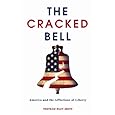Proust (re-visited) via Hesperus Press
The cover blurb reads: “A stunning volume of philosophical reflections, short narratives and poems", offering us “ an early glimpse into Proust’s literary genius, and revealing him as both a remarkable chronicler of metropolitan life and a compassionate recorder of the most poignant sensations and recollections.”
There is an excellent Forward by A.N. Wilson, where we learn that Proust completed these stories, poems and fragments before he was 23 years old. (One can only be awed by the knowingness, the psychological perspicacity displayed by one so young.) "What will immediately strike any reader of this volume of short stories is how surely, from the first, Proust knew his theme." And Wilson helps us to understand the literary import of Proust’s style: “The complex syntax, those long sentences with their coiling clauses that he was already practising in the Pleasures, is deployed in The Search (i.e. In Search of Lost Time ) to make us slowdown and take the time to notice the world and the richness of its interconnections.”
Of course, if you have never even dipped your toe into A La Recherche Du Temps Perdu, whether in French or in translation, that last remark won’t mean much to you, but Pleasures and and Days will give you an authentic introduction to the Proustian style and themes so that, who knows?- you may be tempted to launch forth on the great work itself!
From Pleasures and Days:
Here is the 23-year old Proust describing the bleak and lonely last days of the young Baldassare Silvande,Viscount of Sylvania:
‘ He turned his head away from the happy image of the pleasures that he had passionately loved and would never enjoy again. He looked at the harbour: a three-master was setting sail."It's the ship leaving for India" said Jean Galeas.
Baldassare could not make out the people standing on the deck waving their handkerchiefs, but he could guess at the thirst for the unknown that filled their eyes with longing; they still had so much to experience, to know, and to feel. The anchor was weighed, a cry went up, and the boat moved out over the sombre sea to the West, where, in a golden haze, the light mingled the small boats together with clouds and murmured irresistible and vague promises to the travellers.'
As I read those words, I was haunted by echoes of Theophile Gautiere’s poem, L’Isle Inconnu, memorably set to music by Berlioz:
Dites, la jeune belle,
Où voulez-vous aller?
La voile enfle son aile,
La brise va souffler.
L’aviron est d’ivoire,
Le pavillon de moire,
Le gouvernail d’or fin.
J’ai pour lest une orange,
Pour voile une aile d’ange,
Pour mousse un séraphin.
Dites, la jeune belle,
Où voulez-vous aller?
La voile enfle son aile,
La brise va souffler.
Est-ce dans la Baltique?
Dans la mer Pacifique?
Dans l’île de Java?
Ou bien est-ce en Norvège,
Cueillir la fleur de neige,
Ou la fleur d’Angsoka?
Dites, la jeune belle,
Où voulez-vous aller?
'Menez-moi', dit la belle,
'A la rive fidèle
Où l’on aime toujours'.Cette rive, ma chère,
On ne la connaît guère
Au pays des amours.
Où voulez-vous aller?
La brise va souffler.
